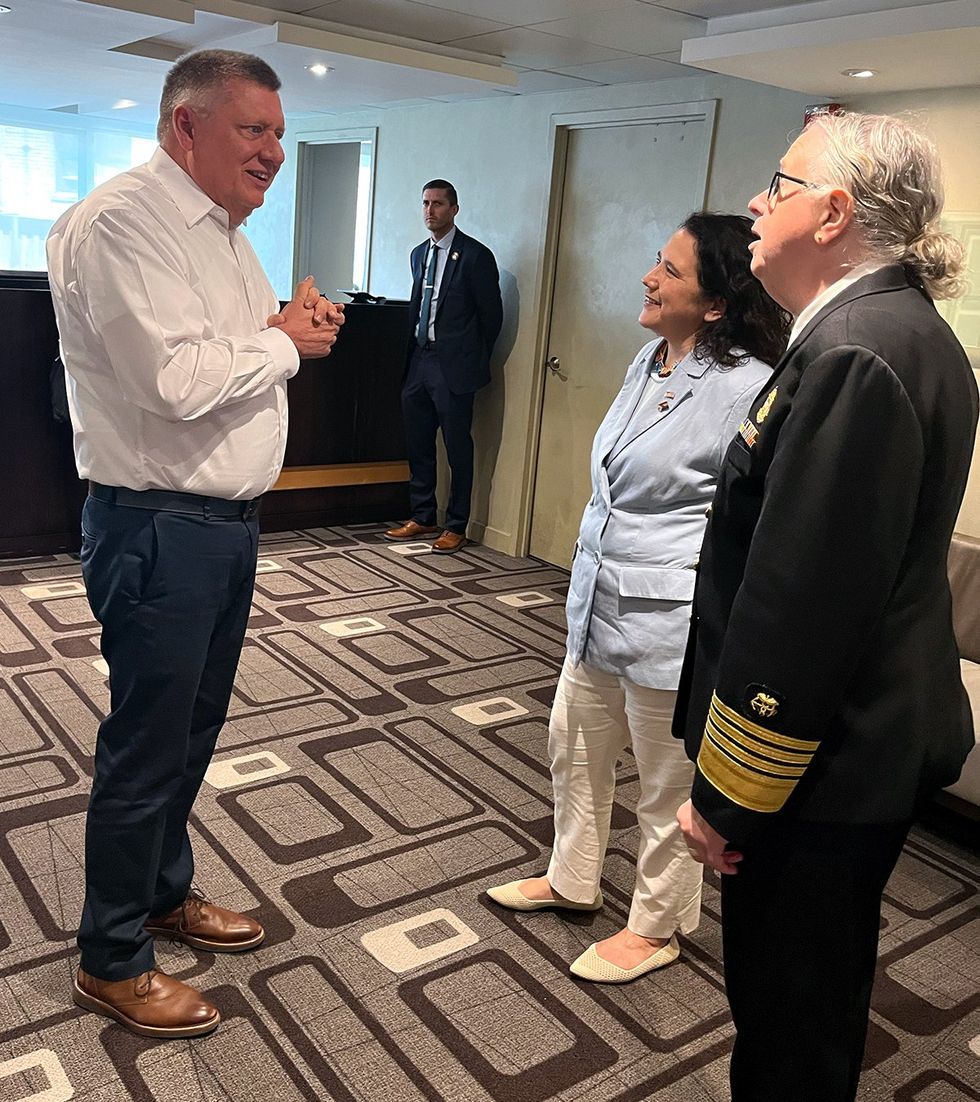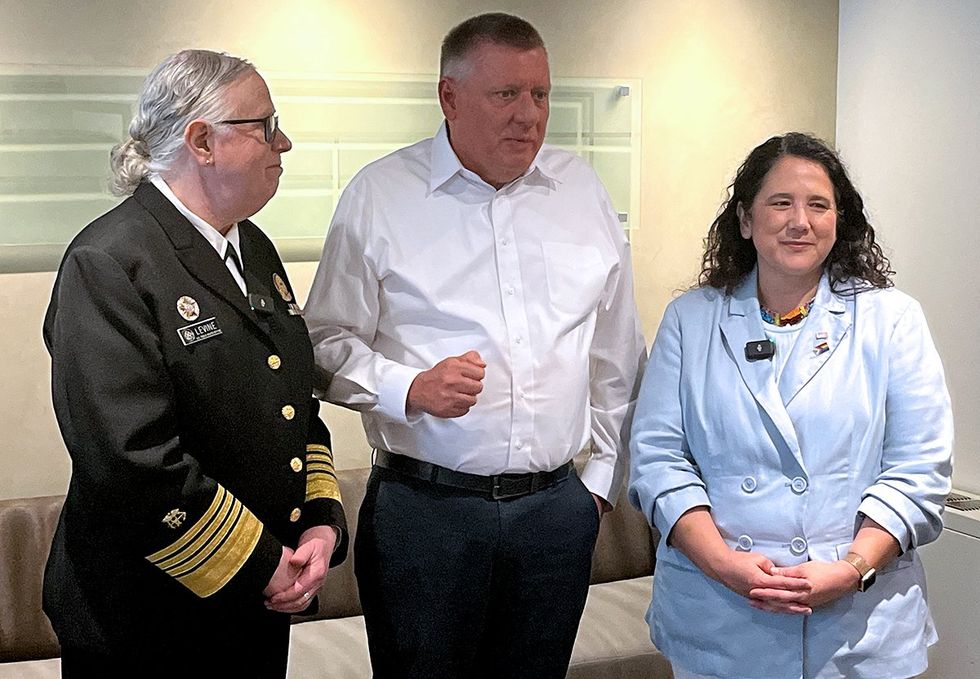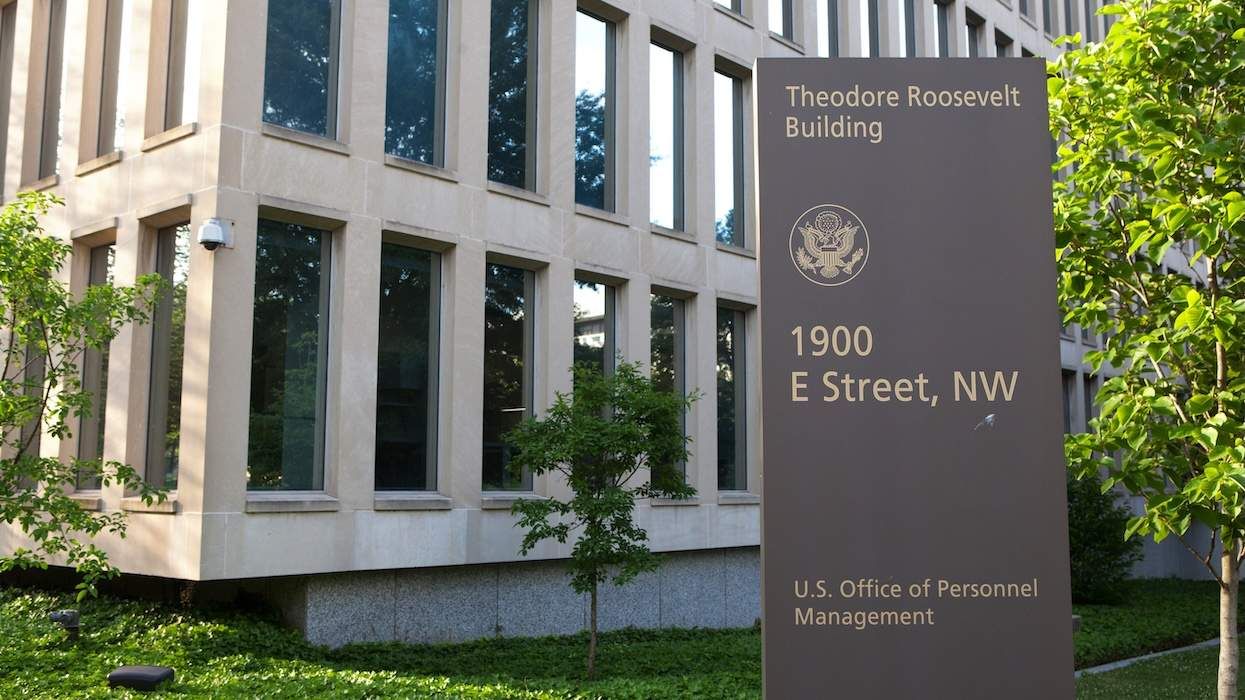Small Business Administration Administrator Isabel Guzman and Health and Human Services Assistant Secretary for Health Admiral Rachel Levine, the first transgender person confirmed by the U.S. Senate to an administration position, toured several LGBTQ-owned small businesses in the nation’s capital on Tuesday, emphasizing the importance of technology, support and inclusivity for these companies.
The day’s first stop was at Big Gay Smiles, a Washington, D.C., dental practice at Washington Circle. Co-owners Robert McKernan and Tyler Dougherty and their team welcomed Guzman and Levine.
Later, the Biden administration officials toured Price Medical, in the famed Dupont Circle neighborhood, where Guzman and Levine were welcomed by founder and lead physician Dr. Timothy Price. Price Medical is a primary care practice known for its LGBTQ-affirming services, offering comprehensive care to the community since 1997.
During the visit, Price highlighted the significant impact of telehealth, especially during the COVID-19 pandemic. He said it may have been the only good thing from the global crisis.
“Telehealth has been transformative for us, allowing us to provide accessible medical care to our patients even when in-person visits were not possible,” he said. He emphasized that telehealth now accounts for about 22 percent of office visits, a trend that has improved patient care and efficiency.

Price further explained, “I think that it’s really important to be able to provide care to all patients through telehealth. People being able to access medical care from sometimes the comfort of their home or workplace can be very important; being able to ask questions and get an answer and have access to a health care provider. Sometimes, for the LGBTQ person in particular, there might be a sexual concern that they want to talk about. For instance, we have had patients need to access us for post-exposure prophylaxis for HIV. That has come up when people are vacationing, and they have something that might be related to their health and can reach us. So that’s how it’s helped us and helped patients.”
Levine echoed the sentiment on telehealth’s advancement in providing patient care.
“I think that there have been tremendous challenges with the acute phase of the COVID-19 pandemic, but one of the opportunities that came out of the pandemic is, as Dr. Price was saying telehealth," she said. "Telehealth throughout the United States has been more utilized [and] has tremendous opportunities and growth in terms of traditional medical care and mental health care. We are certainly supportive of telehealth at HHS under Secretary [Xavier] Becerra to provide those opportunities for providers and patients.”
The practice, which began focusing on HIV care and gay men’s health in the 1990s, now serves a diverse patient base, including transgender people and other members of the LGBTQ+ community. Price said his practice has about 450 patients who take advantage of PrEP medications to prevent contracting HIV. He also said that about an equal number of people in the practice are living with HIV.
“I think the patient population we see here really values having a provider that specializes in LGBTQ health,” Price told Guzman and Levine. “I think it helps when the providers also come from the same community and can understand the struggles or the demographics of the community or the expectations, and people can feel comfortable talking with us.” He noted that the service demand is higher than his office’s availability. “We are oftentimes completely full and can’t take on new patients,” Price said.
He added, “I think that in D.C. particularly, having a very out population to a large extent and people referring their friends and all that kind of thing, the practice has always grown very organically because there aren’t many people with this direct focus. Even in a big city like this, there are not that many practices that would be identified as primarily an LGBTQ practice or primary care, even though there are individual providers around town.”
Guzman noted the broader economic impact of technology in LGBTQ+ small businesses.
“One of the silver linings of the pandemic was that small businesses adopted technology at high rates. They have historically been reticent to adopt technology, which limits productivity and their ability to improve and access more revenue opportunities,” she said.

Adopting technology became a crucial step as businesses adapted to the new realities brought about by the pandemic. Many small businesses, including those in the healthcare sector, embraced digital tools to maintain and improve their services. This shift not only helped them survive the immediate challenges of the pandemic but also positioned them for greater efficiency and reach in the future.
The telemedicine market was valued at nearly $115 billion in 2023 and is forecast to reach $286.22 billion by 2030, according to Tech Report. In the U.S., 44 percent of physicians used telehealth at least weekly in 2023, and about 40 percent used it daily. During the height of the COVID-19 pandemic, telehealth claims grew by 766 percent. As of 2021, 88 percent of Americans preferred continuing to use telehealth services post-pandemic.
As the visit concluded, Guzman and Levine spoke about the importance of Pride Month. “Happy Pride Month. It’s a great time to celebrate our LGBTQ+ community, the businesses that they’re creating, and the impact that they have on the economy,” Guzman said.
She said that underserved communities are “key” to the economic landscape.
“During this [Pride] month, we want to make sure the community is aware of the resources at the SBA. We can help you start and grow and build resilient businesses with capital products and our partnerships across the nation,” Guzman said. “We want to make sure we’re networking to get the word out that SBA is here to help.”
Levine added, “Pride is hope for a more equitable future. Under Secretary Becerra, health equity is fundamental to everything we’re doing at HHS. We are working towards health equity for the LGBTQI+ community throughout the United States, not just in the [D.C.-Maryland-Virginia] area or the Northeast. There are many states where that’s challenging, where statutes and actions have challenged much of the LGBTQI+ community, particularly vulnerable transgender youth, their families, and their medical providers. The Biden-Harris administration has been very clear that we support the community, the broad LGBTQIA+ community — our rainbow family. We support these vulnerable trans youth and their families and their medical providers, and we’ll do everything we can to support them.”
















